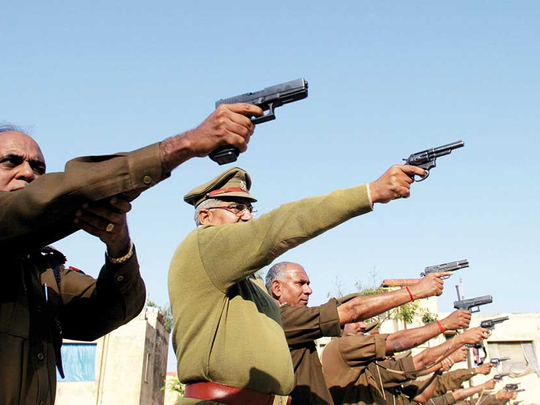
New Delhi: Kareem, 52, is a fruit vendor. “I was tired of running from one place to another. When the police opened a window of opportunity for people with a criminal past to restructure their life, I approached the nearby police station. On assurance (from them) that I will not be treated as a criminal and fugitive, I requested for help. They arranged a cart for me and now I earn my livelihood and live a peaceful life,” he reveals.
Since the past few months, Saquib, 27, has been driving a rickshaw. “I want my younger brother to get proper education and join the police force. Because of my wayward ways, my family suffered so much. But now I have decided to earn their respect,” Saquib, another notorious criminal, says.
Many such history-sheeters are now employed. Harish is a vegetable vendor; Altaf has set-up a bicycle-repairing shop and Mohit drives an auto-rickshaw. These are just a few cases cited from various towns of Uttar Pradesh state.
Ever since the Bharatiya Janata Party leader Yogi Adityanath took over as chief minister of UP in 2017, police claim, there has been a subsequent decline in crime rate across the state. That is because of the aggressive policies adopted by the UP police.
Speaking to Gulf News, at the police headquarters in Lucknow, Om Prakash Singh, Director General of Police, Uttar Pradesh, attributed this change to “a clean management at the top level.” We have received clear-cut directions for zero-tolerance towards criminal activities.
The police chief said: “For the last few years, for reasons best known to people, the police in UP, was on the back foot. Perhaps for the first time we now have a non-interfering administration (in UP) that is clear in its vision and committed to eradicate organised crime.”
He said: "We have told the criminals to mend their ways or be ready to face the consequences."
"We have undergone a 360-degree change in our policing system. On the one hand, a massive manhunt is on in every nook and corner of the state to chase criminals against whom non-bailable warrants had been issued, but they remained at large for years. On the other hand, we are motivating and boosting the morale of those who want to mend their ways and wish to join the mainstream of society.”
As a result of the new directives, out of more than 3,000 wanted criminals, more than half have been arrested. More than 5,000 criminals have withdrawn their bail applications and decided to serve their prison terms. For fear of being killed, many approached the police and decided to shun their criminal past and choose better options to earn a livelihood. With long pending cases, many petty criminals had been able to live a settled life, as the fear of law and social stigma, had made them fugitives.
The police chief said in the new scheme of things, the criminals have realised that not respecting the rule of law could prove dangerous for them. "Moreover, I do not believe in the saying: ‘Once a criminal, always a criminal". Every person should be given an opportunity to amend his life. Even as we are encouraging them to go for vocational training, we are keeping an eye on them, so that they do not go astray. Our two-pronged strategy is working.”
According to news reports, in the past one year, more than 40 criminals have been shot dead in over 1,100 encounters.
Refuting allegations of encounters, Singh said: “We call it police crackdown. Referring to these as encounters, gives them a very negative connotation, as every encounter does not result in the death of a criminal. A crackdown happens, either on a tip-off or through chance. In either scenario, our first intention is to arrest the criminals. But sometimes the criminals are heavily armed and they do not want to surrender. When police become target of their firing, we have to liquidate them.”
• Criminals killed in encounters in the past one year — 48
• Dreaded criminals arrested having reward on their head — More than 1.500
• Those who have withdrawn bail applications — 5,000
(Names of criminals have been changed to protect their identities)












